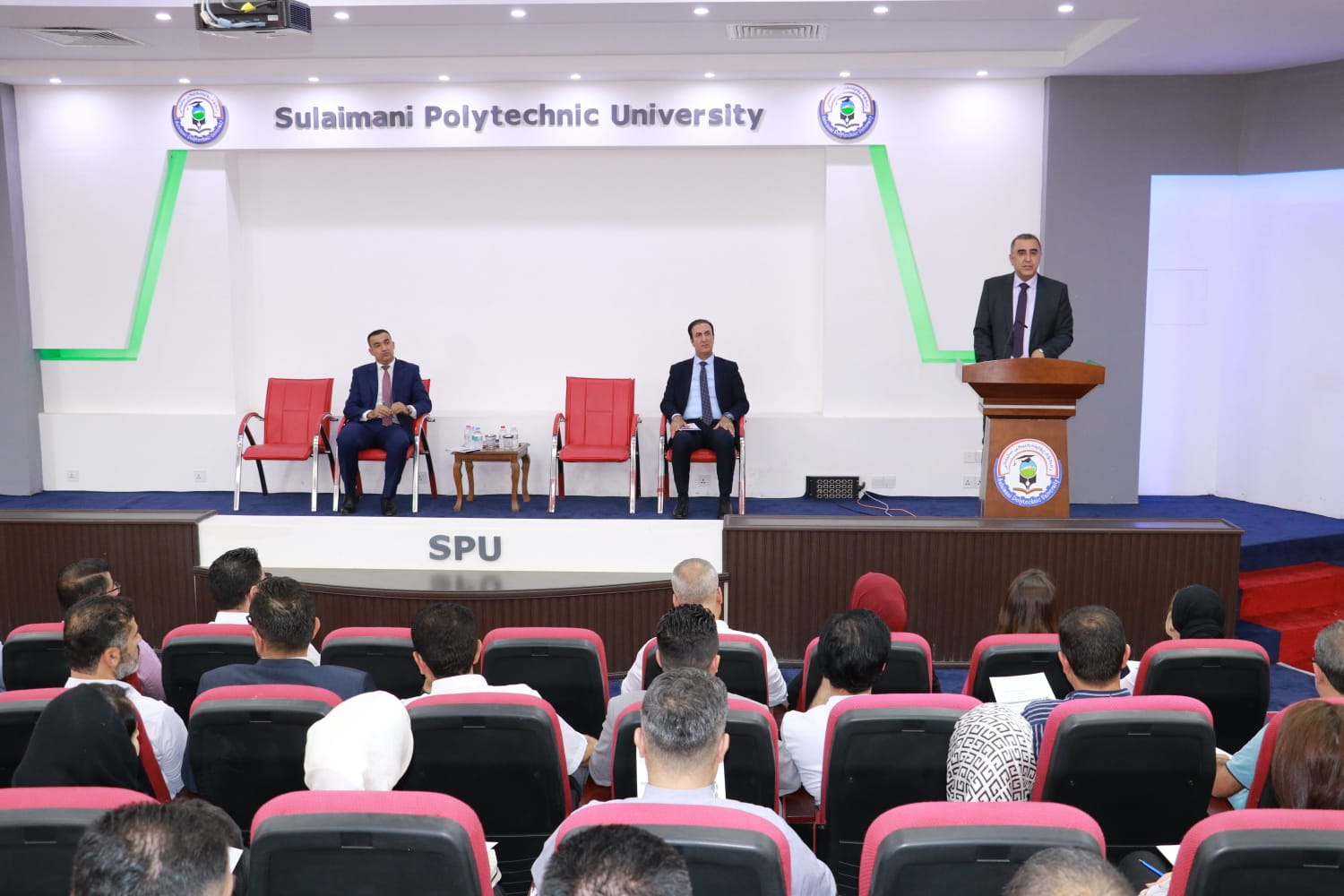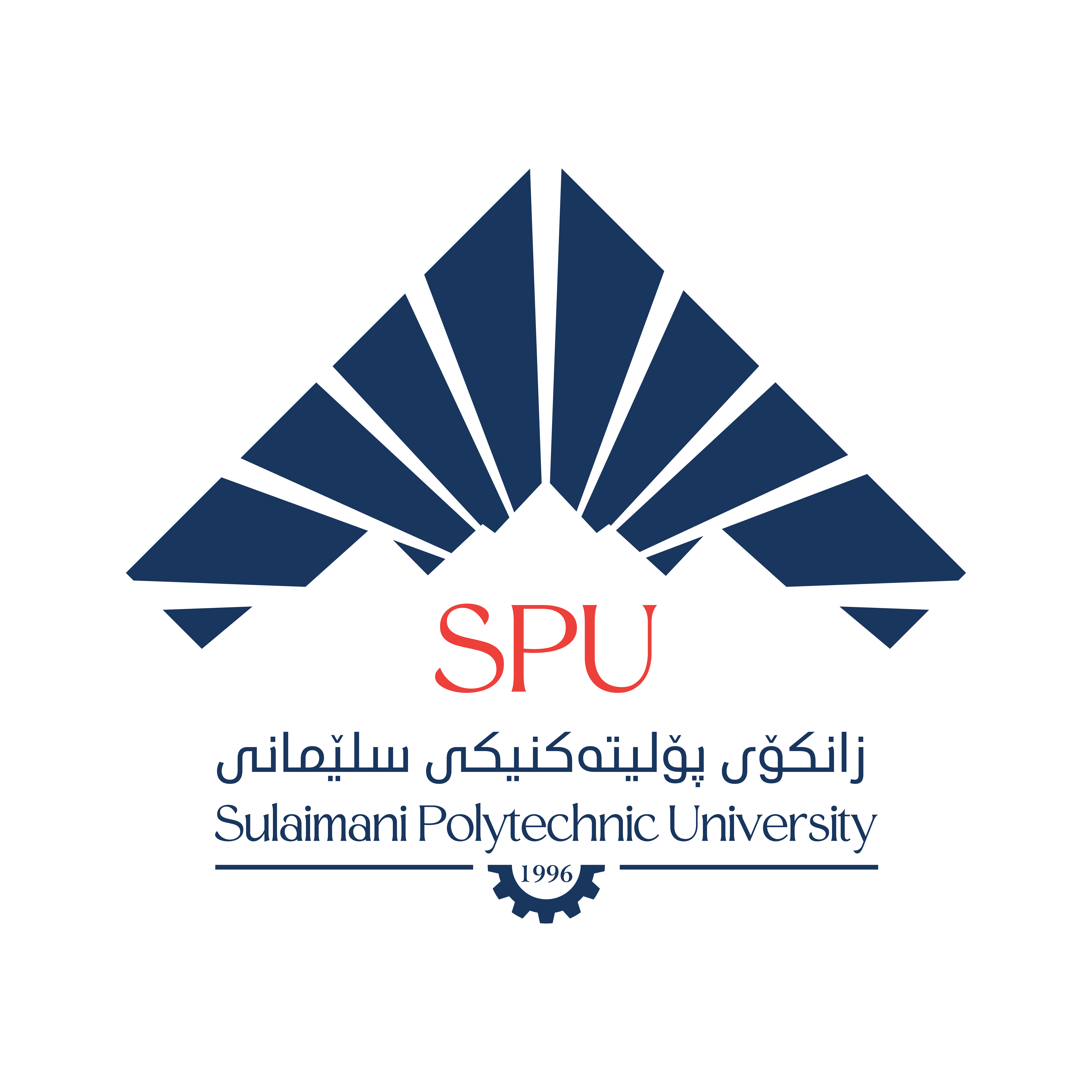
The Bologna Process will be Implemented in all Departments of the University for the Academic Year 2023-2024
- Categories News & Activities
- Date 12/08/2023
A seminar was held in Sulaimani Polytechnic University (SPU) on the Bologna Process for its implementation in all departments of colleges and institutes of the university. The president of SPU said that the Bologna process will solve many of the problems in the higher education
sector.
In a seminar held under the direct supervision of Asst. Prof. Hoshyar Abdullah Aziz, president of the University and under the supervision of the High Committee for the Implementation of the Bologna Process of the University held a meeting with all the heads of colleges and institutes to implement the Bologna Process in all departments of the university.
The seminar was attended by the vice president for Scientific Affairs and Higher Education, students, some of the deans of colleges and institutes, and the directors of educational programs and quality assurance. At the beginning of his speech, Asst. Prof. Dr. Hoshyar Abdullah Aziz welcomed the participants and congratulated the organizers of the seminar and said: It is a pleasure that this seminar is in line with the new strategy of the university, which always emphasizes on changes and radical reforms in curricula; Fortunately; he said In the past, we have been able to make several important and radical changes, and this seminar is an extension of our efforts to continue to further develop the university. In another part of his speech, the president said: Since the beginning of our occupation as the presidency, one of the important goals of the university has been to try to get out of the classical system that was followed in colleges and institutes and to internationalize the university and standardize the education system. He said that for this purpose, after a year of our assumption of office, we emphasize the decision of our university council to (implement the Bologna Process), and our university attaches great importance to its implementation Bologna Process, which one of our goals is to improve the quality of the university and integrate it with international systems and implement the Bologna Process.
In another speech, Asst. Prof. Dr. Sarhang Sarwat Hama, Vice President for Scientific Affairs and Higher Education, spoke about the importance of following the Bologna Process and said: “The Bologna Process is an important attempt for us to adapt the higher education system in our university with the education system of developed countries become an achievement. This process is an important scientific project in higher education and has its own criteria. Currently, more than 48 countries in Europe and around the world follow the Bologna Process.
It is possible, this system does implement through the credit system (ECTS), which will make it easier for our students to be admitted to the world’s famous universities to continue their higher education. He explained that: The ECTS system provides a better learning environment for our students, because it is for accumulation and credit students need activities. He also mentioned that the implementation of the Bologna Process can solve many of the problems of student transfer, linking educational programs to the labor market and equalization of degrees in our university, because the system will enable students to continue their studies in any other countries if they want to.
In another part, Director of Education Programs and Quality Assurance Miss Shara Saleh Ali presented a seminar on the preparations and how to implement the Bologna Process for the participants, and pointed out that after five years of implementation of Bologna so far out of 71 departments of colleges and institutes in morning classes, only 28 departments follow the Bologna. Moreover, out of 36 departments of evening studies, only 7 departments of institutes follow the Bologna process, so she stressed the importance of implementing Bologna system in all departments of the university.
Finally, the High Committee for the Implementation of the Bologna Process at the University answered all the questions and comments of the participants.











